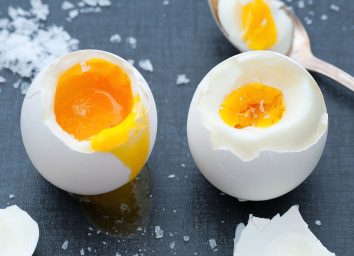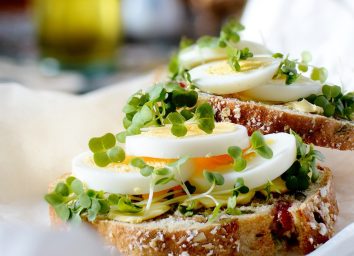Side Effects of Giving Up Eggs, According to Dietitians
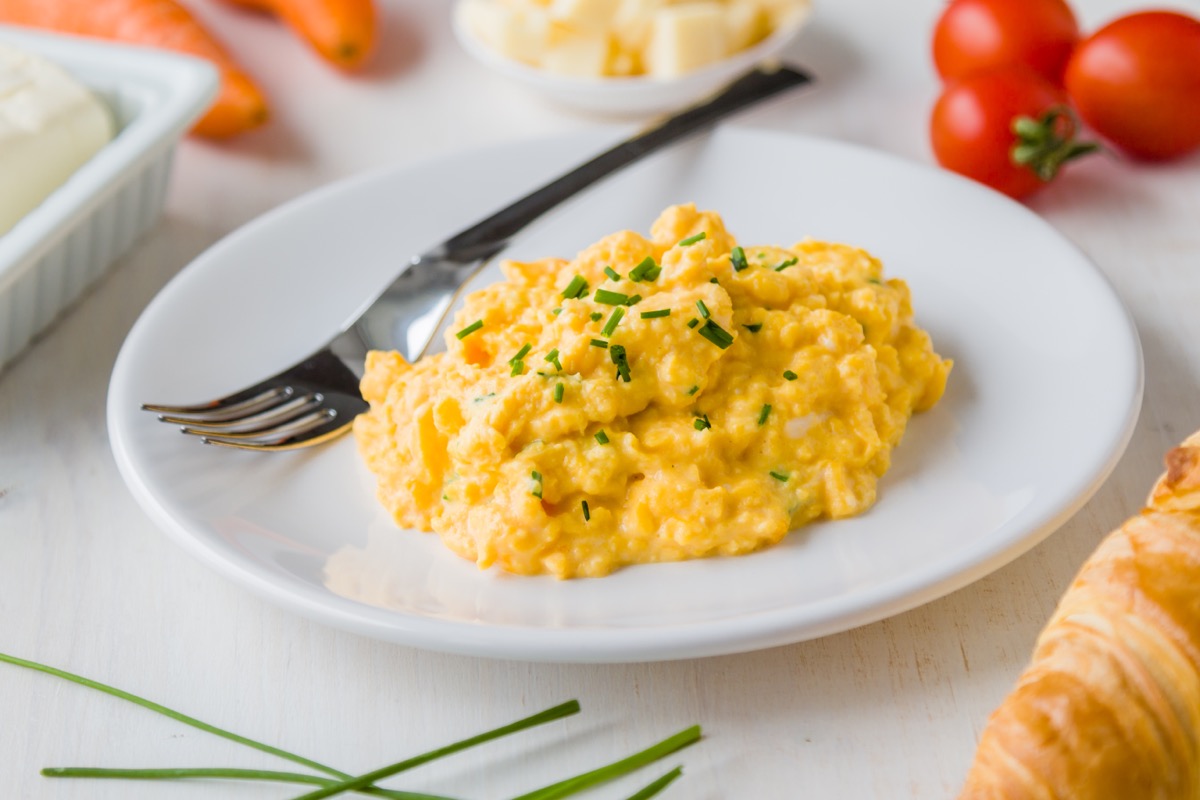
Whether you eat them poached, scrambled, fried, or hard-boiled, eggs are a staple in countless U.S. households. According to the United States Department of Agriculture (USDA), U.S. residents eat an average of 286 eggs per year!
However, what’s under the shell isn’t always what it’s cracked up to be. If you’re trying to get healthier, going vegan, or just want to switch up your dietary routine, read on to discover the side effects of giving up eggs. And if you want to revamp your eating habits, check out The 7 Healthiest Foods to Eat Right Now.
You may feel less satiated.
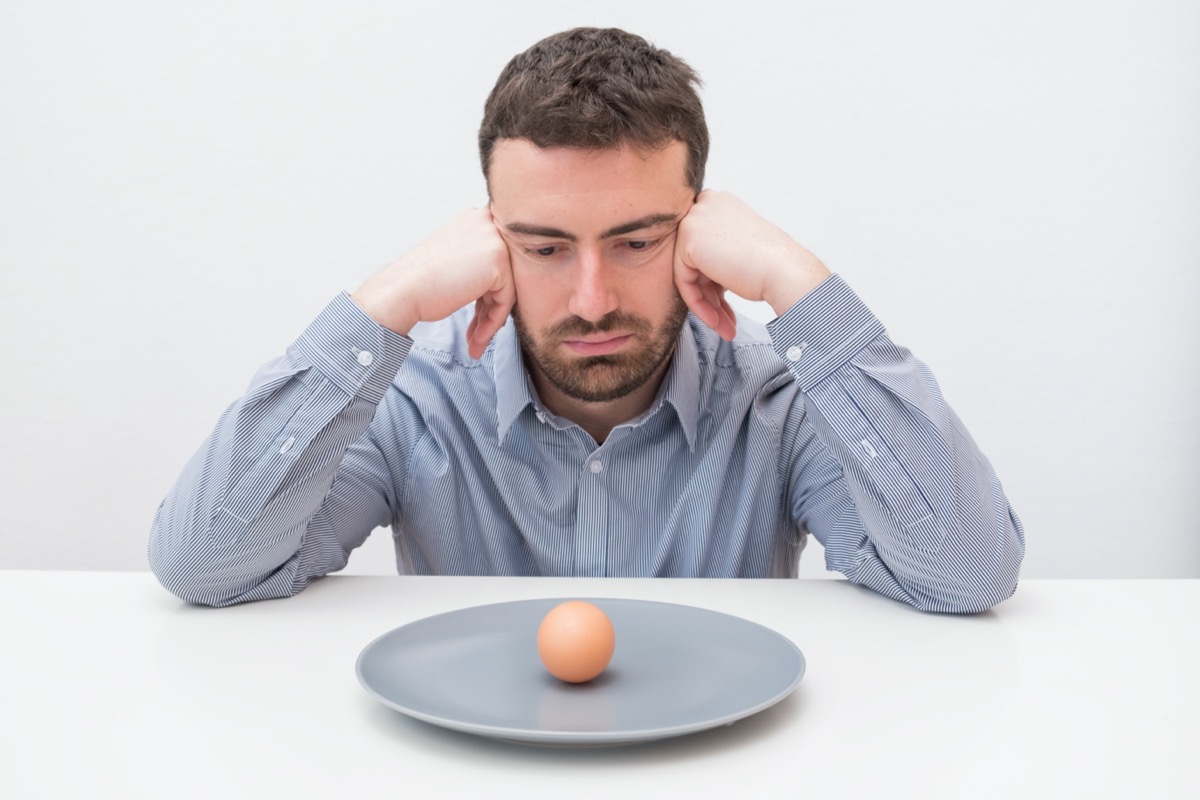
While you may cut some calories from your diet by giving up eggs, you may also feel less satisfied after your meals.
“Eggs are rich in protein, which promotes a feeling of satiety. If you eat less protein, you’re more likely to experience hunger pangs and cravings shortly after eating,” explains Diana Gariglio-Clelland, RD, a registered dietitian and certified diabetes care and education specialist at Next Luxury.
You may eat more caloric meals.

Unfortunately, you may find yourself eating more calories in total if you cut eggs from your meal plan.
“When people give up eggs, they tend to eat more caloric breakfasts. Without eggs as an option, people tend to opt for more cereal, bagels, muffins, and carb-rich breakfasts. This is especially true when eating out whether at a quick casual or sit down restaurant,” explains Jodi Greebel, MS, RDN, a nutrition consultation with Citrition.
You may miss out on beneficial nutrients.
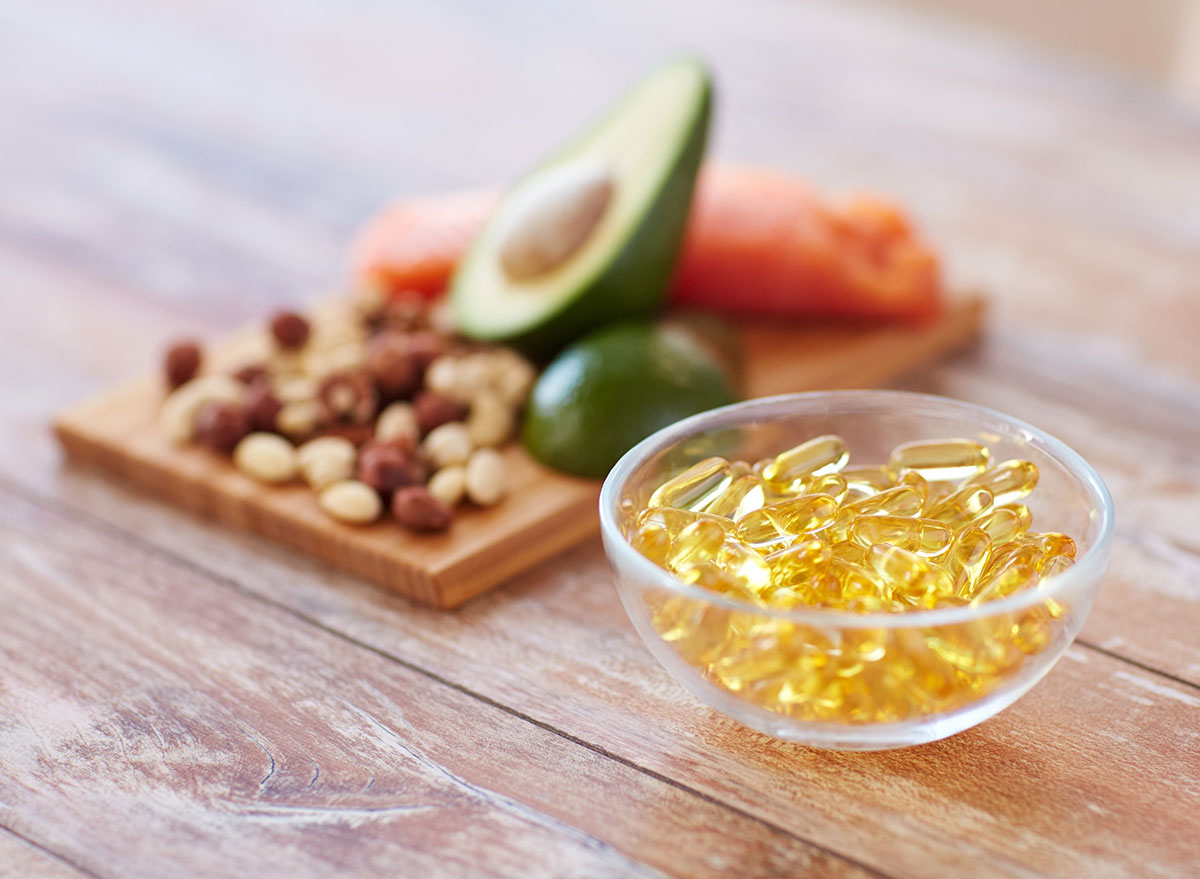
If you’re cutting eggs from your diet, you may also be cutting out some important nutrients from your meal plan.
“Egg yolks contain the majority of the egg’s nutrients such as vitamins A, D, E, and K, as well as heart-healthy omega-3 fatty acids if the hens were fed a diet containing flaxseed,” explains Gariglio-Clelland. And if you want to The One Vitamin Doctors Are Urging Everyone to Take Right Now.
You may lose muscle.

Ditching a major source of protein, like eggs, from your diet means your workouts are less effective over time.
“Eggs contain leucine, an amino acid important for the synthesis of muscle mass, which decreases with age,” says Gariglio-Clelland, who notes that this may mean you lose muscle mass when you cut eggs from your diet.
Looking to reach your fitness goals faster? Check out the 14 Best Foods for Better Workout Results, According to Experts.
Your cholesterol levels may not change.
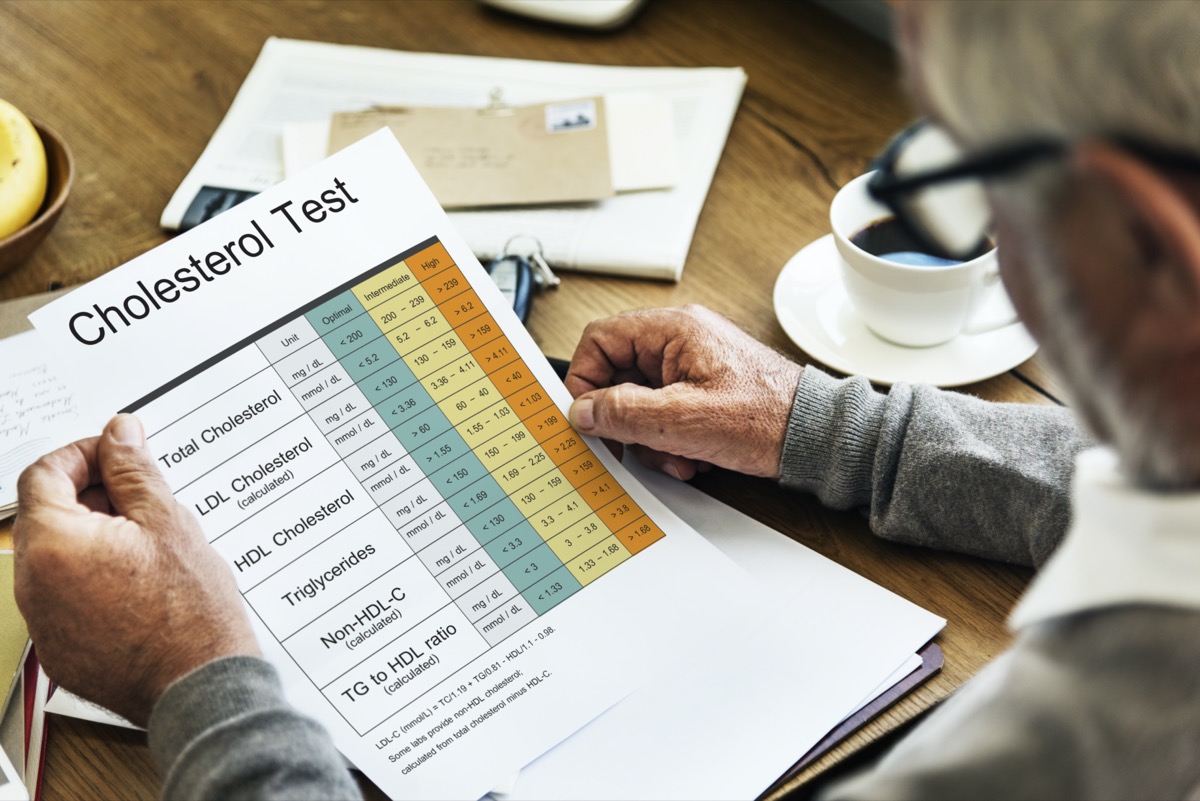
While eggs are a source of dietary cholesterol, giving up eggs may not do as much to improve your cholesterol levels as you’d expect.
“Only about 20% of our blood cholesterol comes from what we eat—the other 80% is produced by your liver,” explains Gariglio-Clelland. “This means that while lifestyle changes have some impact on cholesterol levels, your own genetics plays the largest role.” And if you want to get your cholesterol levels into healthier territory, check out these 17 Foods That Lower Cholesterol.
